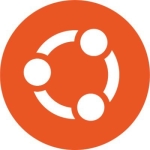What is our primary use case?
Most of our infrastructure is made up of Linux servers. All of the apps that we have published are running on a Linux system. That is the main functionality.
I am responsible for Ansible for automation, and I am also responsible for our Satellite server, which is for patching and things like that. We use Red Hat Enterprise Linux a lot. We have 80% Red Hat Enterprise Linux and 20% Windows.
How has it helped my organization?
The benefits have been in terms of the speed and how the operating system does not interfere with apps that are running on it. That is the best aspect, at least from a business point of view. Databases run smoother, and so do the applications we have. There is no latency or issues like that.
We have a small number of servers up in the cloud in AWS, and then most of our servers are on-prem. We have a data server. Red Hat Enterprise Linux has made the deployment of servers smoother. We can do that pretty much with the click of a button, especially using AWS's platform.
For security and compliance, we have to be in sync with our security team. We cannot leave anything open. In Ansible, we have set up an actual configuration management playbook where it keeps all of our systems security compliant. It is really cool. Right now, we only have it working on our Dev and QA environments. We have not moved past that because we still have Chef. We are trying to get off of Chef completely. As of now, we are a hybrid. We have Chef and Ansible. Eventually, we will be completely Red Hat Ansible.
When it comes to keeping our organization agile, it is easy to decommission servers. Most of it is on VM, so we can just delete and then rebuild. If we accidentally delete a server, we can always bring it back because of backups and things like that. That is possible because of VMs. We do not have OpenShift, so I cannot say that Red Hat is the one that is keeping us agile.
What is most valuable?
The feature that I am enjoying right now is the actual LEAP program that they created for the actual in-place upgrades. I am upgrading from Red Hat Enterprise Linux 7 to Red Hat Enterprise Linux 8. We are in the process of that, so that is the best functionality right now. It never had that ability in the past. That addition has been an amazing aspect.
What needs improvement?
I am not too sure how it could be better. I have not yet used Red Hat Enterprise Linux 9, so I cannot say if there have been any changes or improvements. Honestly, I cannot see it getting any better. I like the way the operating system works now, and I do not really see any bad functionality with it.
The only thing I would say is getting rid of some aspects. That is the one part that a lot of admins probably get annoyed with. For example, we are now going to DNF from using YUM. At some point, YUM will be taken away completely, but right now, you can use both. There are those minor tweaks, and you just have to roll with the punches. Maybe it is just a better version of what was there prior. DNF is probably used at a simpler level, and it probably does not take up as much configuration and space as YUM. I am not sure exactly why they make those changes, but that is probably the only thing that is kind of annoying.
For how long have I used the solution?
In my current company, we recently switched from CentOS to Red Hat Enterprise Linux. We are also working with CentOS. It has been around three years with this company, but I have been using Red Hat Enterprise Linux a lot longer. I am a Linux admin and I have been using it since 2006 or 2007.
What do I think about the stability of the solution?
It is definitely stable. We never have any issues. Everyone wants to blame the patching or some change in the OS, but it is never that. It is always the other side.
What do I think about the scalability of the solution?
It has a lot of scalability. We have plans to increase its usage. We are in the process of getting off Oracle Linux, which is, again, another version of theirs, but we are going to be converting those over to Red Hat. All of our databases are going to be running on Red Hat.
How are customer service and support?
It is awesome. I just upgraded my Satellite server. I moved from Red Hat Enterprise Linux 7 to Red Hat Enterprise Linux 8 and then also upgraded to Satellite 6.14, which is almost the most recent version. I did that in the last month. Their support was awesome. I worked through what was said in the documentation on how to do the upgrade. I created my own spreadsheet for the upgrade and what I needed to do. I worked with their support. I had a meeting with them to check if it would work and if anything needs to be added or taken away. They worked with us that way. Their support is awesome.
How would you rate customer service and support?
Which solution did I use previously and why did I switch?
We had CentOS. It is still based on Red Hat.
We are just now starting to use Podman. We were using Docker, and we are now moving over to Podman, which is the Red Hat Enterprise Linux-specific version of containers. It has been an easy transition. We do not necessarily work with Podman. Application owners are the ones who want us to install it, and then they utilize it the way they want to.
How was the initial setup?
We have three data centers. We have a data center in the East in Pittsburgh, and then we have one in Arizona. We also have it in the cloud in AWS. Even there, there are two, so we have four data centers.
We do have a few Red Hat Enterprise Linux systems on the cloud. We are not sure if we are going into the cloud completely, but we do have some servers in the cloud. Our cloud provider is AWS. Our main app resides in the cloud. All the data, most of the data servers, and other applications are on prem.
I was involved in the deployment of Red Hat Enterprise Linux. We were the ones who converted it. It was very simple. Red Hat's technical person gave us the conversion script and tools. We just utilized that conversion script to switch from CentOS.
What about the implementation team?
We did not use a consultant or an integrator. Red Hat gave us the tools, and we did it.
What was our ROI?
I do not know what the impact is financially because I am not in that department. For compliance, it has been helpful. Especially the banks have to be compliant in terms of being patched and things like that. Red Hat has been beneficial.
The biggest return on investment has been the ease. I have been a Linux admin for many years. I have used Solaris, AIX, CentOS, etc. I have always liked Red Hat Enterprise Linux better. It is just a better OS.
What's my experience with pricing, setup cost, and licensing?
I do not know the overall cost, but I know that Red Hat is cheaper than Windows.
Which other solutions did I evaluate?
We did not evaluate any other solution. We were going to Red Hat Enterprise Linux.
What other advice do I have?
We just switched from open source, which was CentOS, to Red Hat. My advice is to stick with Red Hat only because with open source, you do not get the updates at the same time. The updates come later for vulnerabilities and things like that. I would not recommend open source for an organization. If you are at home, you can go ahead and easily use CentOS. It is free, so why not use it? For an organization, Red Hat Enterprise Linux is better.
Currently, we are not using Red Hat Insights the way they are meant to be used. We are planning to do so at some point in the future. Currently, we only use it as a tool to make sure that it keeps track of all of our servers, whether we delete or add servers. Red Hat Insights keeps track of that and lets us know what version it is and things like that, but we do not utilize Red Hat Insights the way they are meant to be. Red Hat Insights provides vulnerability alerts and targeted guidance, but we use Nexpose for vulnerability scanning.
Red Hat Enterprise Linux has not yet enabled us to centralize development. That is because of the way the company is structured. Everything is fragmented. We have a separate networking team. We have a separate Linux team and we have a separate software team. Getting something done and centralized is pretty much impossible at this point. Any small tweaks are like pulling teeth at this point. I do not know if that is going to change. Hopefully, it will. We are planning on moving to OpenShift. I am hoping that it will make everything more centralized and it will bring the company to a less fragmented spot.
I would rate Red Hat Enterprise Linux a ten out of ten.
Disclosure: My company does not have a business relationship with this vendor other than being a customer.




















Great interview!